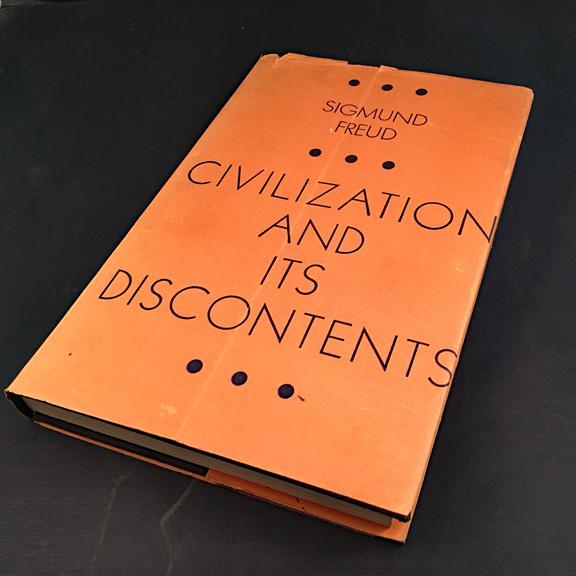
But he began his career as a medical professional, studying the brain.Įlizabeth Lunbeck: He was a neurologist who early on became very interested in the question of hysteria, which is why-especially young women-were falling victim to diseases that seemed to have no organic substrate. Zachary Davis: Freud is best known for his work in the field of psychoanalysis, a theory for treating mental health disorders by studying the unconscious mind. Today, I’m talking to professor Elizabeth Lunbeck about Civilization and Its Discontents.Įlizabeth Lunbeck: He was born in a small town in Central Europe, moved when he was very young to Vienna, where he stayed until 1939, and died in London, having been driven out of his native Vienna by the rise of the Nazis. In each episode, I talk to one of the world’s leading scholars about the impact one book had. Welcome to Writ Large, a podcast about books that changed the world. And the paradox is this: civilization, which we created to ensure our happiness-turns out the same civilization is what is the source of our greatest misery. So, the main argument of the book turns on a paradox. This contradicts the idea that civilization is a problem-but that’s the point. Zachary Davis: So, civilization is actually. But he says everywhere that's been tried, we set up barriers because we somehow need those barriers to overcome in order for us to feel gratified. She’s talking about Freud’s theory of civilization, which he laid out in his 1930 book, Civilization and Its Discontents: civilization’s a problem, and it makes us unhappy.Įlizabeth Lunbeck: So, Freud argues, you might think that we could just go back to a state of nature, and everyone could just live out their licentiousness sexually, aggressively, and so on. Zachary Davis: That’s Elizabeth Lunbeck, a professor in the History of Science at Harvard University. And civilization with its laws and mores prevents us from gratifying that aggressiveness.

We delight in exercising our aggression, in killing one another and hurting other people, in promoting our own superiority. For Sigmund Freud, the famous psychoanalyst of the 19th and 20th centuries, civilization was a problem.Įlizabeth Lunbeck: The sort of foundational idea that Freud gets to is that we are at base very aggressive creatures.


There are a lot of positive aspects to this way of life: laws keep people safe, political systems give the world order, and cultural identities bind us together.īut civilization has its downsides.

Whether we live in the city or the country, we all live in civilizations. Zachary Davis: No individual is an island.


 0 kommentar(er)
0 kommentar(er)
